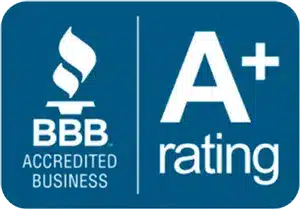Hundreds of people get diagnosed with HIV/AIDS in Oklahoma every year. Besides the use of medications to treat HIV patients, it’s crucial to contain the disease and prevent the spread of the virus. Pre-exposure prophylaxis (PrEP) is one way to do that. Pre-exposure Prophylaxis or HIV PrEP is the use of antiviral drugs that prevent people at risk from contracting HIV. At Equality Health, our PrEP specialists go above and beyond to administer PrEP for HIV prevention in Oklahoma.

Understanding PrEP in HIV Prevention
PrEP is a crucially important preventative medication plan that reduces the risk of virus transmission. If you take PrEP as prescribed, it will lower the risk of HIV transmission through sex by 99%, and transmission through drug injections will be reduced by 74%.
How Does Pre-Exposure Prophylaxis Work?
PrEP works by setting up “walls” around your CD4 cells, which prevent HIV from entering and using your healthy cells or immune system to spread throughout your entire body. In other words, it stops HIV from replicating. PrEP protection begins around 7 to 20 days after the first dose, and it only continues if you take it as prescribed.
Some antiviral drugs that we use at Equality Health as pre-exposure prophylaxis medication include:
- Truvada: Truvada comes in the form of pills and contains Emtricitabine and Tenofovir Disoproxil Fumarate, which prevents the replication of HIV and creates a barrier against it. It is prescribed to people who have gotten (or are likely to be) infected with HIV through sex or injection drug use.
- Descovy: Descovy comes in the form of pills and contains emtricitabine and Tenofovir Alafenamide, which hinder the replication of HIV. It is prescribed mostly to men and transgender women who are sexually active and are at risk of contracting HIV.
- Apretude: Apretude is the first injectable HIV prevention drug that contains Cabotegravir (CAB-LA) to stop the spread of HIV. It’s a long-acting drug for people who are at risk of HIV exposure through sex and weigh at least 35 kgs.
At Equality Health, we understand your medical history and sexual behavior before coming up with a suitable PrEP plan to safeguard your health.
PrEP Eligibility and Assessment
At Equality Health, we recommend PrEP for HIV protection for people who:
- Engage in unprotected sex
- Engage in sex with people of unknown HIV status
- Engage in sex with HIV-positive people
- Have had an STD in the last 6 months
- Engage in sex with people who have had an STD in the last 6 months
- Share injection drugs
- Share injection drugs with people who are at risk of HIV or are HIV-positive
- Are sex workers
- Are interested in protecting themselves from HIV
If you fall under any of the criteria above, you are eligible for PrEP. However, before we prescribe you a PrEP course, we want to see if you are fit to receive it. That’s why we conduct a series of tests to be sure. These tests include:
- HIV Test: The HIV test makes sure that you are HIV-negative to start PrEP.
- STI Screening: Individuals at risk of HIV may also be at risk of other STIs. We will conduct tests to confirm your status on other STIs.
- Kidney Function Test: some forms of PrEP can affect kidney function, which is why it’s important to conduct tests to make sure that your kidneys are in good condition.
- Hepatitis B Screening: some of the medicines used for PrEP are often also used with hepatitis B, so we need to know your HBV status before starting PrEP.
PrEP Initiation and Prescription In Oklahoma
At Equality Health, we initiate your PrEP plan with a one-on-one consultation with an expert healthcare provider. This consultation helps us understand your sexual activity, medical history, drug usage, and other risk factors associated with HIV. Since our consultation is conducted in a safe and comfortable environment, it also gives you the opportunity to ask about your concerns and reservations.
After your medical evaluation eligibility and assessment tests, we decide if PrEP is right for you or not. If you are eligible for PrEP, we will guide you through different medication options, allowing you to go for one that suits you the best. This guide empowers you with knowledge about the different side effects you should expect from your PrEP medication, including
- Headache
- Nausea
- Vomiting
- Weight loss
- Rash
Our providers will further guide you through the dosage plan and how you can manage the side effects. Whatever dosage we prescribe you, we will make sure you have access to ongoing support and care.
PrEP Monitoring and Follow-up
The key to successful prevention of HIV is constant monitoring and follow-up. You must be HIV-negative to continue PrEP, so will need to show up for follow-up appointments to stay on PrEP. The follow-up appointments may include HIV tests, STI tests, and kidney function tests.
Although each patient may have different frequencies of follow-up appointments, a general monitoring plan looks like this:
Every 3 months:
- HIV tests and symptoms check
- Pregnancy tests for women
- Refill of PrEP medication for up to 90 days
- Assessment of side effects and bodily response
Every 6 months:
- Kidney tests, such as estimated glomerular filtration rate (eGFR), creatinine, and urine protein/creatinine ratio
- Assessment of risk factors associated with kidney failure
- In the case where risk factors associated with kidney failure are detected, the follow-ups may include additional tests, such as eGFR) and urine albumin-creatinine ratio (uACR)
Every 12 months:
- Hepatitis C test
- Hepatitis B test (if the patient is not vaccinated)
Contact Equality Health For PrEP For HIV Prevention In Oklahoma
Equality Health always prioritizes your health and well-being before prescribing you any preventive medication or HIV treatment in Oklahoma. Take charge of your sexual health and stay on top of HIV with the help of Equality Health. Make an appointment today at 405-761-2762. We offer PrEP for HIV in Edmond, Moore, Norman, and Oklahoma City.
Frequently Asked Questions (FAQs)
Yes. PrEP is extremely effective against HIV. It prevents the virus from replicating inside your body. It establishes a wall inside your CD4 cells that eliminates the virus as soon as it enters your body. PrEP mainly combines Tenofovir and Emtricitabine to block the enzymes that HIV needs to multiply. However, you must take your PrEP as prescribed, or it will not work.
In some cases, PrEP may be safer than condoms, especially for individuals who are at a higher risk of being exposed to HIV. However, PrEP doesn’t eliminate the need to use condoms. PrEP and condoms are both effective for HIV prevention, but it depends on the individual circumstances of the user.
PrEP can be expensive, ranging from $70 to $3,000 per month in Oklahoma. However, most insurance cover PrEP. Equality Health has partnered with a wide range of insurance networks to provide preventative medication for HIV. Even if you are not insured, we can assist you with obtaining insurance coverage or other assistance programs.
PrEP pills usually take from 7 to 21 days to be effective and work against the virus. The key to effectiveness is consistency and adherence to prescribed medications and dosage.
Yes. You cannot receive PrEP without a prescription. You have to undergo a series of tests to see if you qualify for a prescription of PrEP. These tests include HIV tests, STI screening, kidney function tests, and more. If you qualify for PrEP, the doctor will guide you through the medication plan and dosage.
Yes. PrEP can pose different side effects for every individual. These side effects may include:
- Stomach pain
- Fatigue
- Loss of appetite
- Diarrhea
- Rash
- Nausea
- Vomiting
These are the common side effects that usually go away after a few weeks. However, there are rare serious side effects, like kidney problems, allergic reactions, and a decrease in bone density.
The success rate of PrEP is up to 99%, which means that anyone taking PrEP has a 99% less chance of getting affected by HIV through sex. Moreover, PrEP pills can reduce the risk of HIV exposure through drug usage by at least 74%. That said, the effectiveness completely relies on prescription adherence. If you miss any dose, the effectiveness may be reduced.


